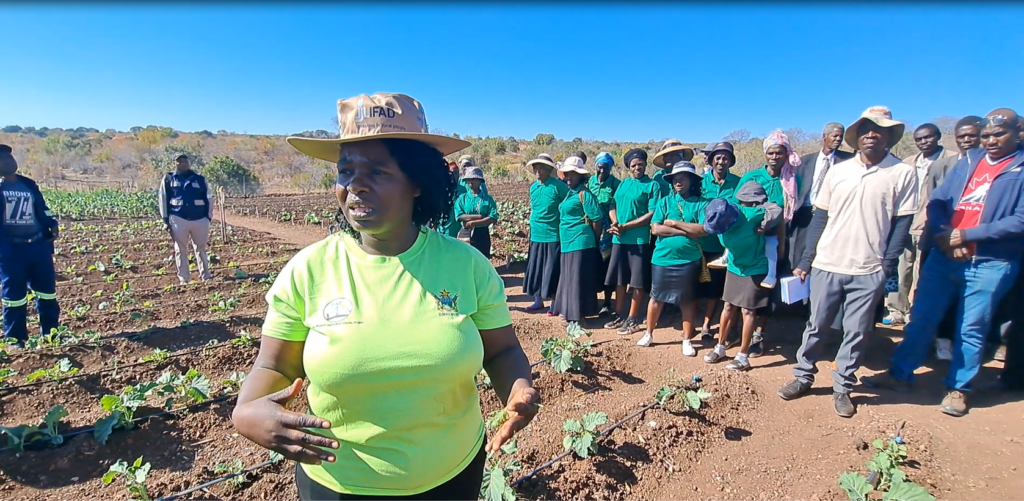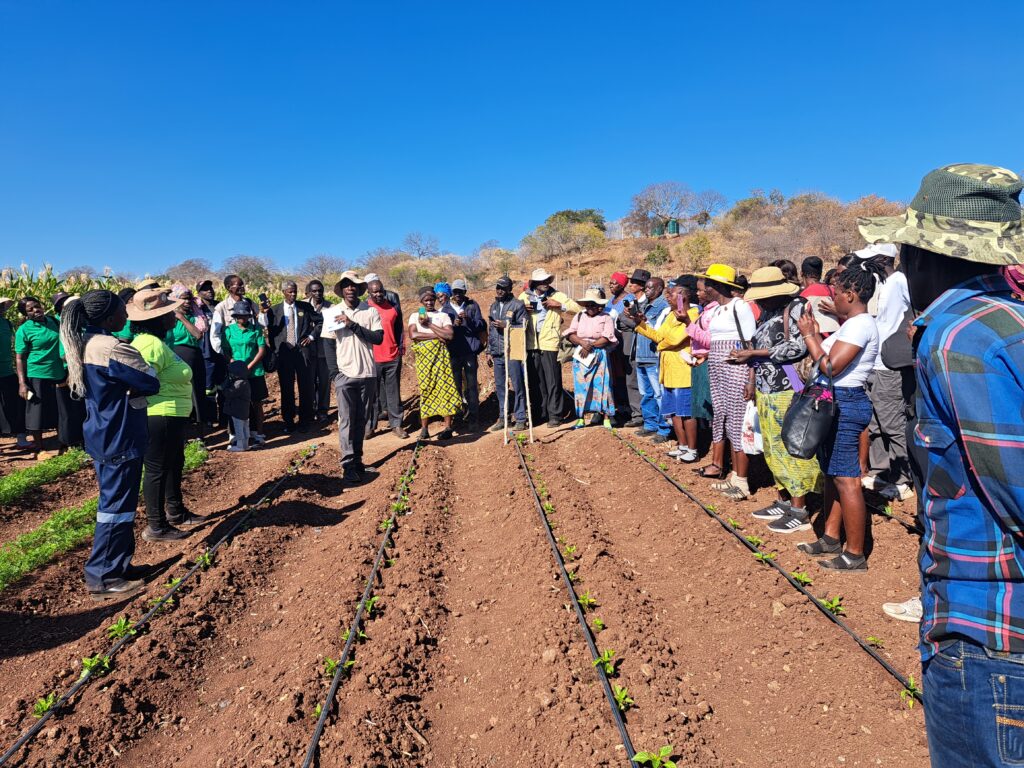Kasikili Jabula Village Business Unit in Hwange hosted an exchange visit for farmers from seven village business units in Hwange district. The visiting village business units (VBUs) included Kalinda, Nabushome, Magoli, Sialwindi, Dingani, Tontola and KaBhata). Five farmers and an extension officer from each VBU attended the training which was held in July.

The exchange visit was led by the Jabula Village Business Unit Committee, the resident extension officer, Martha Chikava and the SACP Climate Smart Agriculture Specialist, Ottilia Mabvongwe. The VBU which is now in its second crop cycle was established in June 2024. Before the SACP intervention, the VBU which was 70m x 70m had no irrigation system, forcing villagers to irrigating using buckets.
During the exchange visit, VBU Secretary, Mr Albert Moyo said during the first crop cycle, members of the VBU cultivated cabbage, maize and tomatoes. He also explained that the VBU has established a 0.25 hectare nutrition corner from which they cultivated green vegetables, onions, carrots. The secretary noted that as a result of the intervention by SACP, VBU members were now food secure and also able to supply nearby schools with vegetables to support the schools feeding programme, complimenting Government’s efforts as it was supplying grain used to prepare the staple food, isitshwala.
Moyo also added that all the crops grown in the VBU which included okra, spinach, cabbage, carrots and maize already had a buyer. The area cultivated for each crop was a response to the demands of the market in the nearby resort town of Victoria Falls. The off taker for the VBU visited the garden every week to pick up vegetables for sale in Victoria Falls.
Questions from other visiting VBUs centered on the pest control regime, which farmers from Jabula explained was a weekly exercise interchanging different pesticides. Regarding the carrot crop in the garden, Moyo explained that they were planning to thin out the carrots as they were crowded and risked producing small carrots. He also explained the combined use of manure and fertilizer in during planting. Extension staff also cautioned against the use of manure when planting carrots, warning that the practice resulted in carrots having two roots or being hairy.
There was also emphasis to maximize the utilization of land by planting two lines of crops per bed. Extension officers advised that carrots could not be transplanted as the process of uprooting them could disturb their shape, further emphasizing on adequate land preparation for the carrots to allow growth of the carrot roots.
Farmers at Jabula also indicated that they had planted garlic for the first time after a learning visit to Manicaland Province. Moyo also explained that crops like garlic and onion were also useful as methods of pest control as they were not prone to pests compared to other crops. The first crop would not be sold but used as seed multiplication, he added. Extension officers also emphasized the use of integrated pest management instead of relying solely on pesticides in order to minimize the use of pesticides and chemicals on crops.
Extension officers and agronomists also emphasized the correct way of planting when using drip irrigation, advising farers that they could plant on the sides of the drip lines as opposed to planting directly under the drip lines. This would enable farmers to full utilize the beds irrigated by the drip line. Farmers were also encouraged to use manure when cultivating the crop.
Farmers also shared notes on the irrigation schedule in the garden which included irrigating their crop for twenty minutes per block.

